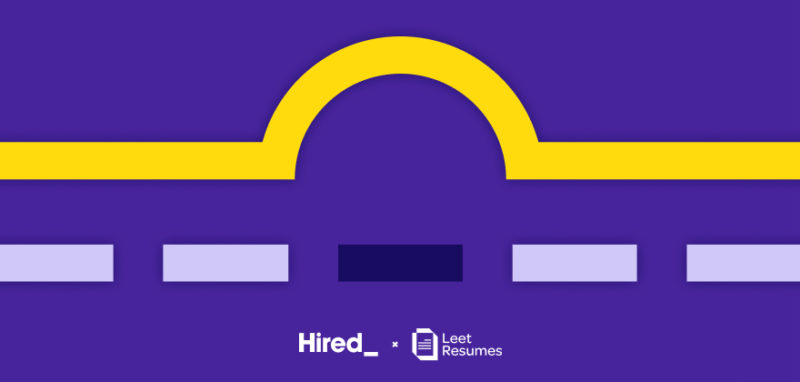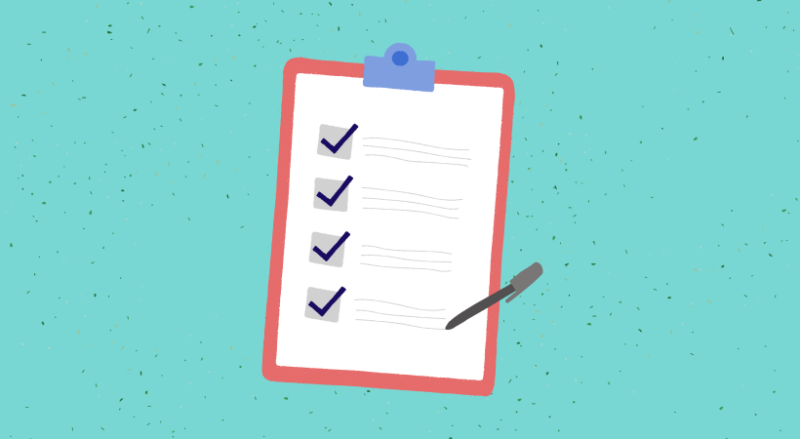
Your Best Final Round Interview Plan: How to Stand Out from the Rest!
If you’ve just been invited for a final round interview for a great job in tech or sales—congrats! You’ve clearly done a lot of hard work to get this far, and the hiring team believes you’d be a fit for the role. This is great news but you may be wondering what to expect in a final interview.
The final round interview means you could be up against some stiff competition. Solid preparation, including understanding what to expect when you go in for this round, is therefore extremely important. In many cases, final interview candidates are somewhat equally qualified. The final interview round is often about who’s the best addition to the team. Who will bring not just the skills, but the insight, the characteristics, and the dynamic the team needs to advance?
Show them you’re the person they need on their team (and would enjoy working with!).
Related: How to Recover After a Bad Interview
5 Tips to Ace a Final Round Interview for a Tech Job1. Ask what to expect in a final round interview
There’s no formula for final round interviews, particularly if you’re targeting startups, which may have incredibly varied hiring processes. On the one hand, companies may use the final round as a cultural fit interview and chance to get to know potential colleagues, whereas other hiring teams may keep the most difficult technical tasks until the last stage.
This can make it challenging to know what to expect, so don’t be afraid to ask. From the company’s perspective, it’s in their best interest to help you perform well (and for them to make an offer)—and this is even more the case if your point of contact is a recruiter, whose performance will often be gauged by successful hires.
Regardless of who’s facilitating your interview process, if they haven’t given you a good sense of what to expect, simply ask them how your time will be spent during the interview, whether there will be a technical challenge, who you’ll be meeting with, and so on. Take the time to research the individuals in your final round interview, you may discover some things or connections in common!
Related: Interviewing with the CTO? 3 Strategies to Help Prepare
2. Time to raise your game
It can be easy to get over-confident and think a final interview means you’re hired. Caution – you should expect in a final interview that the company is performing the same interview for other candidates who are likely just as qualified for the role.
It’s therefore important to strike the right balance between confidence and humility—confidence in your ability to be great in the role, and modesty to avoid sounding like you’re showing off.
That said, don’t be afraid to emphasize your accomplishments—particularly those which build your case for future success at the company.
Even if they’re on your CV and you’ve mentioned them in the past, you may have new interviewers, and even those you’ve already spoken with may have forgotten your qualifications after interviewing dozens of candidates.
On the flip side, it’s important to show self-awareness about where you have room to improve. While you may outshine other candidates with some skills or experiences, chances are they’ll beat you on others. Being able to identify which of those gaps you’re hoping to fill with this new experience demonstrates maturity and commitment to personal growth.
3. Use it as a chance to reposition earlier mistakes and/or reiterate strengths
The goal is not to use the final round to make apologies. Instead, think about instances where your previous interviews with the company could have been stronger. Then, reposition those weaknesses if and when they come up.
Did you forget to mention a relevant experience (and decided to let it go)? If so, the final interview round is your opportunity to incorporate it.
If you stumbled over a question in a past interview, remember what it was and why you struggled with it. Practice it relentlessly before going in again. In many cases, companies use the final round, partly to poke at your weak points, so covering those bases is an important part of your preparation.
There’s a good chance the team will evaluate the questions you ask too. Be sure to research the company more than you have so far to prepare. Perhaps the company or one of the executives has a new interview or mention since you spoke last. Check it out and inform yourself.
Think of anything else you want to know and organize your thoughts and questions. Prioritize them in case there’s very little time at the end of the meeting. If you run out of time, ask if you can submit some additional questions in a follow-up email.
4. Focus on building rapport
In the final round, your interviewers are likely to be strongly considering how it would be to work with you. So, while your skills and qualifications are important, the decision may come down to personality fit. Don’t be afraid to let your personality shine. These are the people you’ll presumably spend every weekday with so share a laugh if the time is right!
Even if it’s not explicitly a cultural fit interview, it’s still important to develop a connection with your interviewer. Be sure to put effort into the nonverbal communication (body language, facial expressions, etc.) as well as the answers you give. Practice in front of a mirror or have a friend record you. You may be unaware of habits holding you back.
5. Keep up the enthusiasm
During the final interview round, hiring managers are looking to confirm you want to join their company. Bring your energy to the table and maintain curiosity.
Asking thoughtful questions is a great way to demonstrate your engagement. Think about the day-to-day of this role. What do you need to know to get a complete sense of work-life at this company? Answers will provide valuable insights into your decision-making process too.
Remember, in the final round interview, you’re evaluating them, tooImportantly, your final interview is also your last chance to interview the company. Use it to determine whether the role would be a good fit for your personality and skills.
If you’ve noticed any red flags in earlier interviews, this is your opportunity to test for those potential weaknesses. Also, evaluate whether the team is one you’d enjoy working with.
Continue preparing and check out the top questions you should be ready to answer in a final round interview.
Related: Best Reverse Interview Questions & How to Offer Reverse Interviews
Not that you know what to expect in a final interview, are you ready to find your dream job in tech or sales? See how Hired works.Originally written in May 2019. Revised Jun. 7, Aug. 3, 2023
Related blog posts

Build Confidence and Take Control of Your Tech Job Search Series
The process of finding a job often feels overwhelming. It’s difficult to determine the best avenue...

How to Answer “Tell Me About Yourself” Interview Question for Tech Talent
How to ace the number one question in interviews for tech roles, like software engineers –...

How to Handle an Employment Gap on Your Resume (Flip the Script!)
You’re not your work history Addressing an employment gap on a resume is one of the most...

How to Stand Out Behind the Screen: a Guide for Remote Candidates
Part of a Series: Setting yourself up for success as a remote candidate Editors note: this...

Video Interviews 101: How To Impress In The Digital Age
12 Easy Steps to Boost Job Interview Success You passed your phone screen with flying colors....

Starting a New Job? 10 Ways to Set Yourself Up for Success
The First 30 Days are Critical When Starting a New Job Starting a new job is often a mix of...

